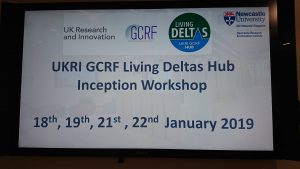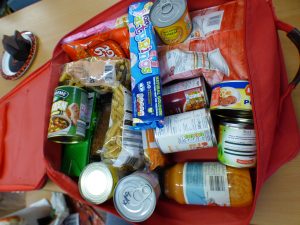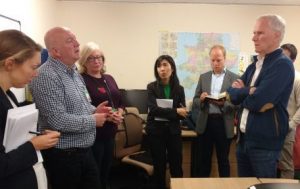In advance of his paper for our oral history seminar series on Wednesday February 27th, Dr Darren Aoki outlines the rationale behind his research into Japanese experiences in Canada at the end of the Second World War. He argues that the participants in his oral history interviews actively reject notions of victimhood in the construction of their identities. Please click here to see the full abstract for Darren’s paper.
Oral History in 2018: What did we learn?
The Newcastle Oral History Unit and Collective is celebrating its first full year of operation with our Annual Public Lecture in March. As with any new venture, it has been a year of learning, and an important part of that has been figuring out where we fit into the world of oral history. To help us with that, we made sure at least one member attended each of the four large oral history conferences held in Europe and North America in 2018*, to get a sense of the ‘state of the field’ that we are a part of. So, what have we learned?
Living Deltas Hub: UKRI and GCRF
The Oral History Collective is delighted to be associated with the UK Research and Innovation (UKRI) Global Challenges Research Fund (GCRF) Living Deltas Hub. As part of a large, multi-disciplinary team, Professor Graham Smith and head of Newcastle University’s School of History, Professor Helen Berry, will lead a team of Research Associates a nd collaborative partners in history and oral history that will explore popular memories of environmental change across three of the world’s major delta regions. Here Graham reflects on just why the project is so exciting.
nd collaborative partners in history and oral history that will explore popular memories of environmental change across three of the world’s major delta regions. Here Graham reflects on just why the project is so exciting.
Children under the Nazis: Exhibition, Education, and Website
What was it like to be a child during Nazi rule, and what have children said about their experiences? These are the central questions driving Dr Beate Müller’s impact and engagement project on ‘Children under the Nazis’. Continue reading
“I was born poor, and I will die poor”: Reflections on disability, ill health and poverty in the age of Universal Credit

This Disability History Month, Silvie Fisch, director of Northern Cultural Projects and associate researcher with the Oral History Unit & Collective, shares some of the stories she heard during our Foodbank Histories project and reflects on the interconnections between disability, ill health and poverty in the age of Universal Credit.
Foodbank Histories meets the United Nations

When the United Nations Special Rapporteur for Extreme Poverty visited the Newcastle West End Foodbank in Wednesday, the Oral History Collective was invited along to share some of the research findings from our six-month Foodbank Histories project, a partnership with Northern Cultural Projects. This work is also part of the Being Human festival, 15-24 Nov. So why is it important?
Oral History Unit: Collective to host national Oral History gathering
We are excited to be hosting oral historians from around the UK for the annual Oral History Society (OHS) regional networkers’ gathering next weekend. The event will begin on Friday 26 October with a special seminar from Dr Rob Perks, director of National Life Stories at the British Library. Saturday’s program focusses on the challenges and opportunities of partnership working and the afternoon will be opened to non-members.
Collected Voices: Oral Histories contextualising archives
One of the organisational members of our Collective is the Newcastle University Special Collections & Archives team. As part of their commitment to opening up the archive, the Collected Voices project gathers the oral histories of those behind the materials. In this post, literary archivist Rachel Hawkes gives us an insight into their work.
Deindustrialisation, Heritage and Memory Network: First Workshop
Research Associate, Andy Clark, has recently been organising and coordinating a new network looking at deindustrialisation, heritage and memory. On Friday 28th September, the network held its first workshop at the Scottish Oral History Centre in Glasgow. In this Lug post, Andy reports on the papers, themes and discussions that emerged throughout the day.
Report: Oral History and Creative Practice, ‘Show and Tell’
The interaction between oral history and creative practice has been a key topic of conversation at the Oral History Collective. In this post, Bruce Davenport reflects on the conversations emerging from our recent Show and Tell workshop.
